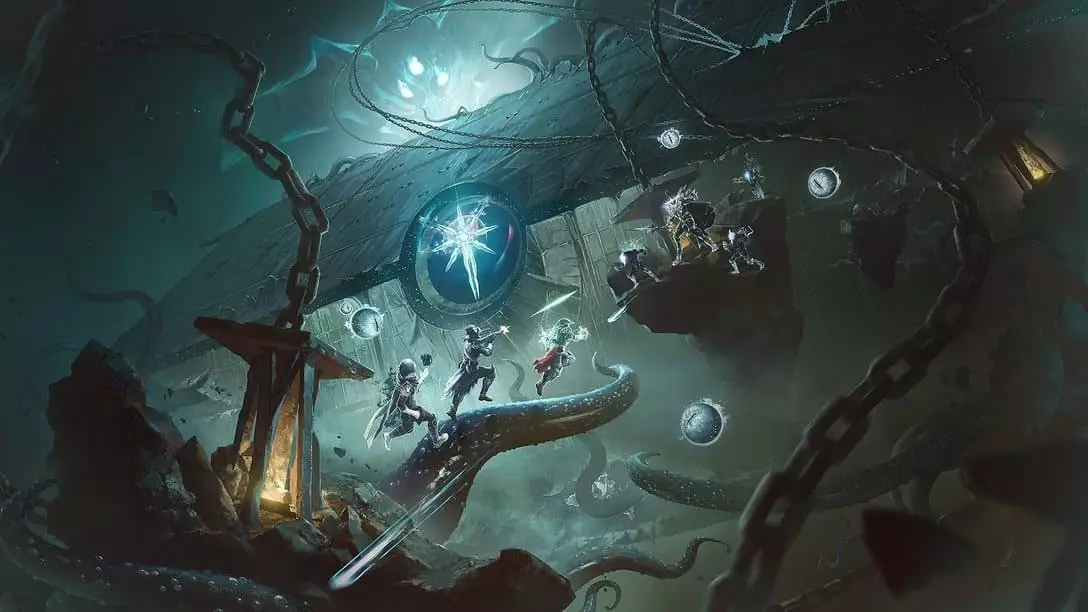The gaming industry is facing a seismic shift, notably highlighted by the ongoing SAG-AFTRA strike affecting voice acting in video games, including the upcoming *Destiny 2* DLC, *Heresy*, which is scheduled for release on February 4, 2025. This strike, which began in July 2024, has ushered in an era of uncertainty regarding the future of voice acting in video games, as key issues revolve around the protections for vocal artists against the encroaching threat of artificial intelligence. As a result, the industry must adapt to a new mode of content delivery with significant narrative implications.
Bungie, the developer behind *Destiny 2*, has announced that *Heresy* will feature missing voice lines due to the ramifications of the ongoing strike. Instead of traditional voice acting accompanying all narrative elements, the game will incorporate subtitles as a stopgap measure. These subtitles will be enabled by default to ensure players can grasp all necessary narrative content, addressing potential gaps in immersion and storytelling. Additionally, players will have the opportunity to customize the appearance of these subtitles based on size, color, and background. This highlights an innovative approach but also raises concerns about how players will perceive storytelling without the depth provided by a full voice performance.
Moreover, Bungie has taken the precaution of alerting players about the absence of voice acting during specific in-game activities, thereby tempering expectations and providing transparency about the current state of production. While the adjustments made by Bungie show a responsiveness to player experience, it also reveals the wider impact of the strike on what has become an increasingly essential element of video gaming—voice performance.
At the heart of the SAG-AFTRA strike is a contentious debate over the role of AI in the creative industry. Union members are advocating for stronger protections within their contracts, particularly concerning the replication of their performances through AI technology. As articulated by Fran Drescher, the president of SAG-AFTRA, the demand is clear: actors in the video game sector deserve comparable rights and protections to those in traditional film and television mediums. They seek fair compensation and comprehensive informed consent regarding the use of their voices, faces, and representations.
This ongoing struggle could have long-term ramifications not just for voice actors but also for the gaming industry at large. With many studios refusing to negotiate fairly regarding these AI clauses, the risk of losing crucial talent migrates alongside the ongoing strike, prompting concerns that quality of future gaming content could be compromised. The significance of voice acting within narrative-driven titles cannot be overstated—when that element is diminished, the entire gaming experience is jeopardized.
Industry-Wide Impacts: Consequences Beyond Bungie
Bungie is not alone in feeling the repercussions of the SAG-AFTRA strike. Noteworthy developers, including Riot Games and Kojima Productions, have indicated that their upcoming titles will similarly suffer from the absence of voice actors. Riot Games reported that certain *League of Legends* skins will lack custom voiceovers as a direct result of the strike. Kojima Productions also indicated setbacks on upcoming titles, adding to the narrative that the strike is creating a ripple effect across the industry.
Despite interim agreements allowing around 80 games to progress with union talent, Bungie appears to have not pursued any such contracts, indicating a deviation from industry norms that could threaten not only its reputation but also its future income streams. With the strike showing no signs of resolution, ongoing contract negotiations have stagnated, leaving many studios uncertain about how to move forward with projects that rely heavily on SAG-AFTRA talent.
As players approach the release of *Heresy*, they must contend with the realities of a shifting landscape in video game production. Unless there is a significant breakthrough in negotiations between SAG-AFTRA and game developers regarding AI protections, we may witness a decline in story-driven content that relies on voice acting, as well as an industry grappling with the evolving implications of technology. The *Destiny 2* DLC serves as a stark reminder of the delicate balance between artistic expression and commercial viability during these transformative times for video gaming.

